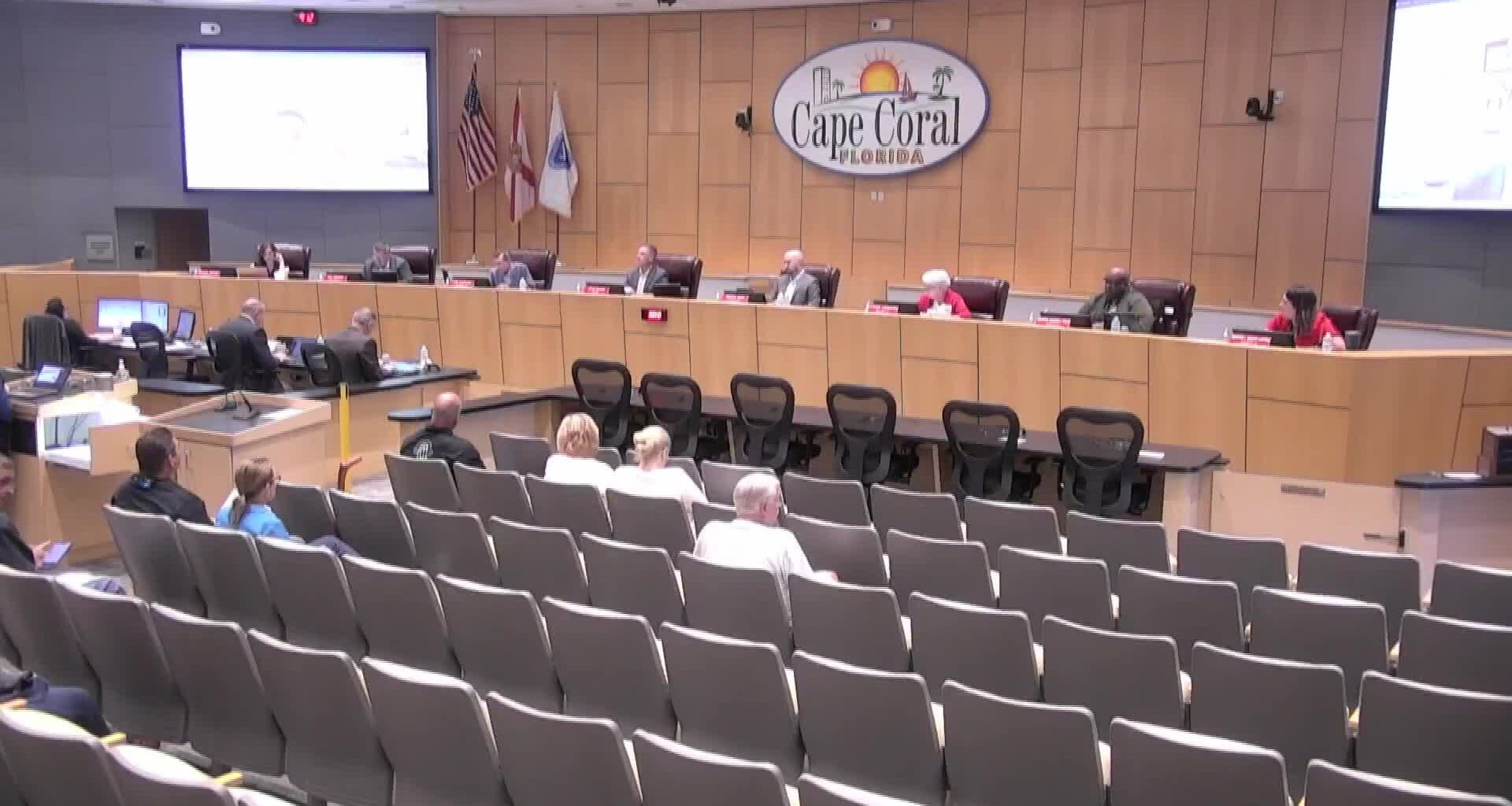City staff proposed comprehensive revisions to Chapter 29 of the municipal code, the section governing Cape Coral’s economic development incentive programs, during the Oct. 15 Committee of the Whole meeting. The changes would clarify program goals, consolidate financial-review language, tighten conditions for incentive awards and expand eligibility for certain program lines.
Sharon Woodbury, the city’s economic development manager, presented a reorganization of Chapter 29 that moves the code’s written goals into the main program section and consolidates financial-responsibility and underwriting language in a single place. Staff recommended that many small-business incentives become reimbursement-based awards rather than up-front grants, and that certain program applicants be required to document the source of matching funds. Woodbury said the change is intended to reduce city financial risk while retaining flexibility for awards that meet an explicit return-on-public-investment test.
Key proposed changes include:
– Expanding the city’s target industries as articulated in the economic-development strategic plan while excluding some uses (car washes, gas stations and storage facilities) from specific programs.
– Making certain awards reimbursement-based (Cape Collaborates/Breaking Barriers alignment) and raising the cap on business infrastructure grants while calculating them as 10% of total construction costs (with an overall $250,000 cap).
– Defining when liens and clawbacks will be used (primarily when the city disburses funds up front) and clarifying the role of lender participation as evidence of project viability.
Council and staff discussion focused on the proposed program mechanics (liens, clawbacks and eligibility) and the prudence of reimbursing expenses versus forward funding. Council members asked staff to return formal ordinance language for introduction and to ensure publicly available guidance for applicants.
Next steps: Staff will finalize ordinance text in coordination with the city attorney and return the draft for a formal introduction and subsequent public hearing process.
Why it matters: The changes are intended to tighten financial safeguards, speed city review and better align incentive programs with the strategic plan while preserving tools to attract and support targeted economic growth.

